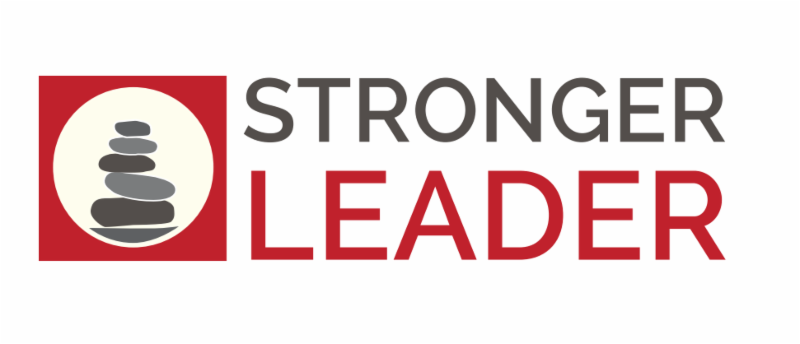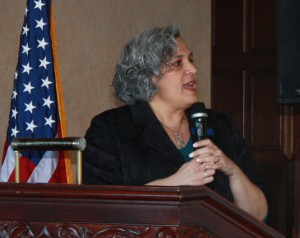Have you ever doubted yourself?
Of course that's a rhetorical question. Everyone has self-doubt, usually a negative, undermining force that can stop you in your tracks. You get all caught up in your head. You might start ruminating or obsessing. It can get so overblown that you lose touch with reality.
I had an episode of it recently. I was working on a contract developing a training program for health care providers. As part of the development process, I’d deliver the 3-hour training to pilot test the curriculum with trainees and funders.
I'm a pretty confident gal, especially when it comes to training. I’ve been around the block a time or two, and I’m known for being good at what I do. Some might say I’m at the top of my game.
Self-doubt can be kryptonite to your confidence.
I was kind of surprised when I couldn't shake off the self-doubt I had about my materials and my approach. I was questioning how good my presentation was. Were my slides interesting enough? Would I capture and keep the audience's attention? Would I present the information in an understandable way? Did I have enough interactivity? Would I help people think about how to apply the material? So many questions!!
The venue was also different than I’d anticipated. When I heard “pilot testing,” I thought about 20 people with extended time for discussion and feedback.
Imagine my surprise when I found 100 people in a huge, classroom style auditorium.
Did I mention they were also videotaping it for use in their online learning center?
My bad for not confirming all these details, so I was thrown.
I was also presenting after my friend and colleague of 15 years, a master trainer who has been doing this for as long as I have. Of course he was funny, engaging, informative and professional. That’s why he’s a master!
And his slides were full of cool animations and features mine were lacking.
If self-doubt wasn’t enough, now I had a good dose of slide envy.
My turn.
The first hour of training was dragging by. The group pointed out errors in the slides and had lots of questions. The session wasn’t interactive enough. I was starting to sweat. And I decided to take the break a little early.
One of the funders came rushing to the front of the room as soon as I called the break. I was expecting admonishment.
Instead, he beamed, “Wow, you are an excellent trainer.” He pointed to the trainees: ‘They are right with you, completely engaged.”
Uh, ok. I was taken aback and pleased by the compliment. But was I really that off in my self-assessment? Others approached me at the break with questions, comments and more good feedback. They were definitely engaged.
The break was over, and I continued with the last 90 minutes of the training. We had the feedback session, which acknowledged the need for more photos in my slides, but otherwise, the comments were positive. Afterward, someone told me she saw my passion for the material come through.
The overall assessment was, “Great training.”
Even with all that positive feedback, a confident, experienced and skillful trainer like me was still influenced by niggling self-doubt.
Self-doubt is a thief that tries to rob your confidence.
But it doesn’t always have to be a bad thing.
Self-doubt can be a positive and corrective force, providing a mental quality control of sorts. Self-doubt keeps you in check: you check your facts, check for typos, check your bank account or check that you locked the front door. A pilot recently told me he experiences self-doubt every time he gets ready to land an airplane, and he considers that a good thing!
How can you extract the benefits of questioning yourself while keeping your self-confidence in tact? Here are a few ideas:
Acknowledge it. We all have moments of self-doubt, so be on the lookout. Practice noticing it. The more you can be aware of it, the more likely you’ll be to take the steps to manage it, integrate it into your experience and move on.
Look at all the data. While the feedback from others at the training was positive I was relying too much on my internal feedback and high expectations. I needed to evaluate what was real and what was a product of my imagination.
I used the feedback to improve the presentation for the final draft. I fixed the errors and added a few more pictures.
Know your limits. It makes sense that I would doubt my ability to do fancy animations because, well, I don’t know how. I could spend hours trying to figure it out, but I know it’s not my forte. I’m lucky to have a member of the team to help out with that. Those are true limits to what I can do. Delegating is great.
Look at past successes. Shake self-doubt by thinking about situations where you did a good job. Ask yourself where you’ve done well and look back objectively at times when you’ve achieved success, had good outcomes and things turned out the way you had hoped. These are great reminders that can dispel self-doubt – or at least quiet it a bit.
The flip side of self-doubt
My friend Lisa Braithwaite, another experienced speaker, had a related experience with a training she did recently. Check out her post about the dangers of complacency that come with experience, and what happens when an expert becomes just a little too overconfident.
http://www.speakschmeak.com/2016/07/i-did-everything-wrong.html
How do you deal with self-doubt? How can you foil that sneaky thief? Share your insights, experiences and advice below.











